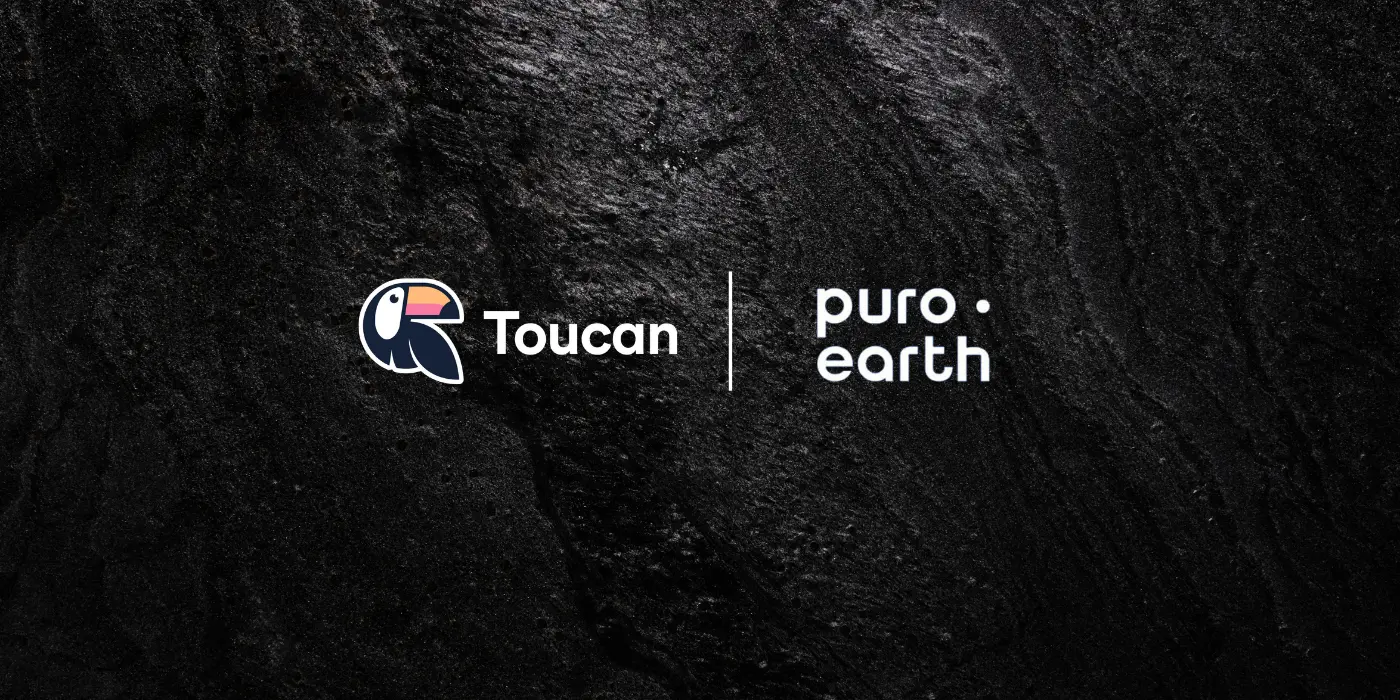Integrating with Puro.earth: Easily Access High-Quality Carbon Credits
We're excited to announce the release of a two-way bridge to carbon removal standard Puro.earth. By creating the first bridge that integrates with the Puro Connect API, Toucan has enabled the instant settlement of biochar carbon credits on-chain, which accelerates the speed for carbon retirements.

We're excited to announce the release of a two-way bridge to carbon removal standard Puro.earth. By creating the first bridge that integrates with the Puro Connect API, Toucan has enabled the instant settlement of engineered carbon removal credits on-chain, which accelerates the speed for carbon retirements. Project developers can access new demand sources, while market participants can move beyond over-the-counter trades.
Why biochar?
Biochar is emerging as an important, multi-benefit solution for removing carbon dioxide from the atmosphere. In addition to increasing crop yields and mitigating climate change, biochar is a net-negative product that removes more carbon than its production emits.
The market for biochar is growing robustly, and its versatility makes it an increasingly desirable option for carbon removal. Partnering with Puro.earth enables us to offer these high-value biochar credits in the form of TCO2s, opening the door for buyers that are looking for impactful and versatile carbon credit options.
How does this integration work?
Toucan’s first-of-its-kind two-way bridge connects the Puro Connect API to the Celo and Polygon networks. Anyone who is hooked up to Puro.earth can submit a tokenization request for their CO2 Removal Certificates – or CORCs – and Toucan will mint them as tokens on-chain. Once the CORCs are on the public ledger, you can instantly trade or sell them in the form of TCO2s; retire them to claim the impact of the credit; or bring them back off-chain at any point in time. These functions give you and your customers maximum flexibility to deploy your assets how and where you want to, which is an important step in Toucan’s mission to provide full traceability and data integrity. For those interested in a deeper understanding of how this two-way bridge works, have a look at our documentation under docs.toucan.earth.
How do I start?
Request access to Version 1 now. We'll provide a detailed walkthrough on how to tokenize, detokenize, and retire CORCs using Toucan’s Puro Bridge and the Puro Connect API. You'll learn how to get started, whether you're a Puro account holder or not, gain insights into what’s on our roadmap, and experience how to get the most out of the first version of our bridge.
What's next?
We see this integration as a leap toward making the carbon market faster, more transparent, and more efficient. We’re excited to increase access to high-quality biochar carbon removal credits, and this marks another milestone in our journey toward full automation.
About the Companies
Toucan is building technology to unlock climate action at scale. Our digital infrastructure is helping to grow the voluntary carbon market (VCM) in a transparent and high-integrity way, by increasing the flow of revenue to the most effective climate impact projects.
Puro.earth is one of the world’s leading crediting platforms for engineered carbon removal, with a mission to mobilize the economy to reward carbon net negative emissions. Their deep expertise, quality technical infrastructure, and shared vision to scale up high-impact climate finance, makes Puro.earth an ideal crediting source for Toucan. Together, we strive to make a significant difference in the world of climate finance.

